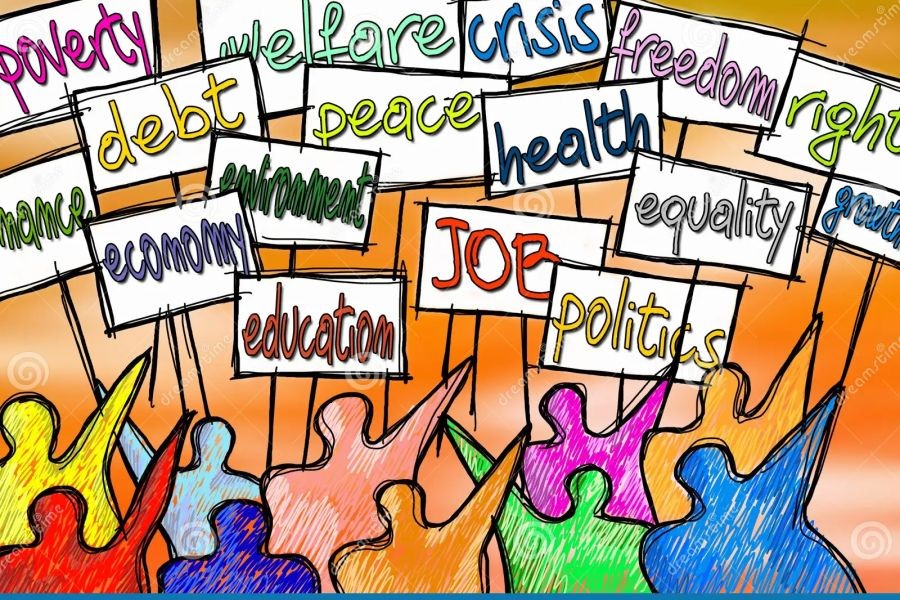In New Zealand's dynamic political landscape, several contentious issues stir debate and shape public policy. These discussions are not mere political rhetoric; they influence everything from economic growth to healthcare delivery. As a healthcare consultant, understanding these controversies can provide valuable insights into the broader societal factors that impact healthcare policy and patient outcomes in New Zealand.
Controversial Political Issue #1: Housing Affordability
New Zealand's housing affordability crisis remains a significant political issue. According to Stats NZ, property prices have increased by 27% since 2020, outpacing income growth and making homeownership challenging for many Kiwis. The government's policies on housing supply and foreign investment are under intense scrutiny, as the demand for affordable housing continues to rise.
How It Works (Deep Dive)
The government's approach to tackling housing affordability involves increasing the housing supply and regulating foreign ownership. However, critics argue that these measures are insufficient without addressing underlying issues such as wage stagnation and the influence of property investors.
Controversial Political Issue #2: Environmental Policies
Environmental policy is another hotly debated topic, particularly in light of New Zealand's commitment to reducing greenhouse gas emissions by 2030. The agricultural sector, a significant part of New Zealand's economy, faces pressure to cut emissions, raising concerns about the impact on productivity and global competitiveness.
Case Study: Fonterra's Emission Reduction Initiatives
Problem: Fonterra, New Zealand's largest dairy cooperative, faced the challenge of reducing its carbon footprint while maintaining its market position.
Action: Fonterra implemented sustainable farming practices and invested in renewable energy sources.
Result: The cooperative achieved a 15% reduction in emissions within two years, setting a benchmark for the industry.
Takeaway: This underscores the potential for sustainable practices to enhance both environmental outcomes and economic performance.
Controversial Political Issue #3: Healthcare Funding
Healthcare funding remains a perennial issue in New Zealand's political discourse. The allocation of resources affects not only the quality of care but also accessibility for underserved populations. With an aging population, the demand for healthcare services is expected to rise, necessitating strategic funding decisions.
Data-Driven Insight
According to the Ministry of Health, healthcare spending is projected to increase by 30% over the next decade due to demographic shifts. This calls for innovative funding models and efficient resource allocation to ensure sustainable healthcare delivery.
Controversial Political Issue #4: Indigenous Rights
Indigenous rights, particularly those of the Māori, are central to New Zealand's political landscape. Recent debates have focused on land rights, cultural preservation, and political representation. The government's approach to Treaty of Waitangi settlements is crucial in addressing historical grievances and fostering equitable development.
Pros and Cons
Pros: Prioritizing indigenous rights promotes social justice, cultural preservation, and national unity.
Cons: Some argue that these initiatives may strain public resources and provoke political tensions.
Controversial Political Issue #5: Immigration Policy
Immigration policy remains a contentious issue, balancing economic growth with social cohesion. New Zealand's approach to skilled migration and refugee intake impacts labor markets, cultural diversity, and national security.
Future Trends and Predictions
By 2030, New Zealand's immigration policy is expected to evolve, focusing on attracting high-skilled migrants to support technological innovation and economic resilience.
Controversial Political Issue #6: Education Reform
Education reform is critical for equipping the future workforce with necessary skills. Debates center around curriculum updates, funding allocations, and the integration of technology in classrooms.
Storytelling for Engagement
Meet Sarah, a teacher in Auckland who has seen firsthand the impact of educational reforms. With new initiatives, she noticed improved student engagement and learning outcomes, demonstrating the potential of well-implemented policies.
Controversial Political Issue #7: Taxation Policy
Taxation policy is a significant political battleground, with debates focusing on income tax rates, corporate taxes, and GST. Balancing revenue generation with economic incentives is a complex challenge.
Common Myths and Mistakes
- Myth: Lowering taxes always stimulates economic growth. Reality: While tax cuts can boost spending, they may also reduce public services, impacting long-term growth.
- Myth: Corporate tax hikes deter investment. Reality: Strategic tax policies can attract sustainable investments.
Controversial Political Issue #8: Social Welfare
Social welfare policies aim to support vulnerable populations, yet debates persist over funding, effectiveness, and dependency. Ensuring a balance between support and empowerment is crucial.
Contrasting Viewpoints
Advocate View: Welfare policies are essential for reducing poverty and inequality.
Critic View: Some argue that these policies can create dependency and strain public finances.
Controversial Political Issue #9: Digital Privacy
Digital privacy is increasingly critical as technology permeates daily life. Balancing innovation with individual rights requires careful policy crafting.
Controversial Take
While digital innovation drives economic growth, inadequate privacy safeguards can erode trust and hinder technological adoption.
Controversial Political Issue #10: Transport Infrastructure
Transport infrastructure development is vital for economic connectivity and environmental sustainability. However, debates over funding, prioritization, and environmental impact persist.
Final Takeaways
- Housing affordability requires multifaceted solutions beyond increasing supply.
- Environmental policies must balance economic and ecological goals.
- Healthcare funding needs innovative approaches to meet rising demands.
- Indigenous rights are central to New Zealand's national identity and equity.
- Immigration policy should adapt to future economic needs.
Conclusion
Understanding these political issues is crucial for healthcare consultants and all stakeholders involved in shaping New Zealand’s future. As these debates evolve, they will continue to influence policies, economic strategies, and societal well-being. Stay informed, engage in discussions, and consider how these issues impact your field. Your perspective can contribute to meaningful change.
People Also Ask (FAQ)
- How does housing affordability impact healthcare in New Zealand? High housing costs can lead to financial stress, affecting mental health and access to healthcare services.
- What are the biggest misconceptions about environmental policies? A common myth is that emissions reduction harms economic growth, but sustainable practices can enhance long-term competitiveness.
- Who benefits the most from enhanced Indigenous rights? Māori communities benefit through improved social equity, while the nation gains cultural enrichment and social cohesion.
Related Search Queries
- New Zealand housing crisis solutions
- Environmental policies in New Zealand
- Healthcare funding challenges in NZ
- Indigenous rights in New Zealand
- Future of immigration policy in NZ
- New Zealand education reforms
- Taxation policy debates in NZ
- Social welfare effectiveness in NZ
- Digital privacy laws in New Zealand
- Transport infrastructure projects in NZ

































hassieedmiston
11 months ago